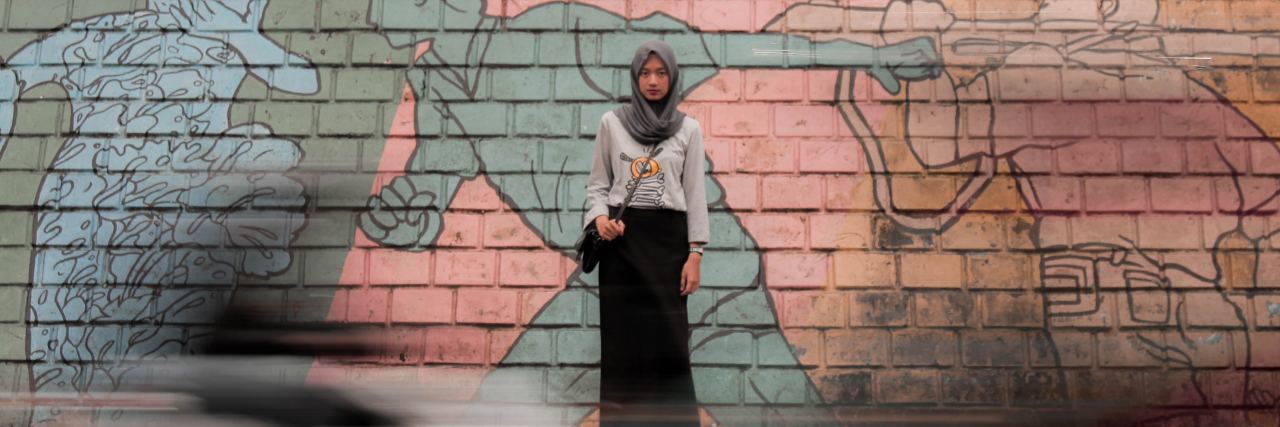What You Need to Know About the Mental Health Stigma in Indonesia
Editor's Note
If you live with an eating disorder, the following post could be potentially triggering. You can contact the Crisis Text Line by texting “NEDA” to 741741.
We know that the stigma relating to mental health issues is always present, no matter which country you are in. Although mental illness stigma seems to be present anywhere, there’s a greater stigma in Middle Eastern culture. I’m not generalizing, saying that every Middle Eastern person has this stigma, but let me specialize it to the area where I live — in Indonesia — and explain why it is related to beliefs. Indonesia is a developing country where most people are Muslim, and the second largest religion is Christian, followed by Hinduism, Buddhism and Kong Hu Cu (Confucianism). Personally, I’m a Muslim.
In Indonesia, mental illness is a taboo thing to talk about, especially when it comes to suicide. For example, if there’s a depressed person wanting to talk with their parents about a mental health issue, there’s a big chance they will be judged and told to pray more. This has become a problem. I’m not offending my own religion, but here’s the truth: Mental illness, especially suicidal thoughts, is believed to be caused by a lack of imaan (faith). People believe that those living with mental illness rarely pray and don’t have enough faith in God. It’s just the way people think since suicide is a great sin and is strictly prohibited (according to Islam). That doesn’t mean I’m judging Islam, but rather saying there’s something wrong with their mindset.
The second problem is due to the lack of education into mental health awareness. Most people here just don’t know what it is and still have trouble distinguishing certain mental illnesses (for example, distinguishing between depression and sadness). Even depression and anxiety seems strange to them — most people just seem completely clueless about it. Although there is a small mental health community, their voices are still not loud enough to lessen the stigma. Even the government only focuses on treatment and facilitation with little focus on education.
And the worst part: people discriminate those living with a mental illness, even in worst ways, and especially on social media. In Indonesia, it’s an ordinary thing to find posts or memes that mock certain mental illnesses. Mostly, they mock people who died by suicide, people with depression, anorexia nervosa, or they mock someone with a disorder like schizophrenia whom they find on the street. When you see the comments, it’s not surprising to see that so much judgment, mockery and harassment might be offending. There’s rarely any protest or defense; they all just seem to agree about their judgments.
Let me give you some examples of the “jokes.” According to the news, there was a man who died by suicide because of being single for too long. Then there’s a meme of it, with a picture of a baby asking his father, “Dad, what is an idiot like?” Then the father answers, while pointing his finger towards the news, “someone like him.” There’s even an illustration of a person living with anorexia being equated to skeletons (or bones) that can be given to dogs. The stigma is just unbelievable and extremely offending.
The impact of this is that people who have a mental illness tend to hide their illnesses because they are afraid of being judged. There are even parents who feel ashamed if their children seek treatment from a psychologist, and parents or other family members who refuse to take their loved ones living with schizophrenia to a psychiatric hospital just because of shame. They’re afraid of the neighborhood saying bad things about them. It’s just as awful as you could imagine.
I’m a psychology student. Being in this situation makes me feel upset most of the time without knowing what to do since the stigma around me is huge. Currently, I’m just sharing awareness of mental health issues on my personal Facebook and Instagram accounts, or probably a distinct account later.
How about you? Do you also live in a country full of stigma? I’d love to know your stories, so please share your experiences.
Photo by Ghiffar Ridhwan on Unsplash

